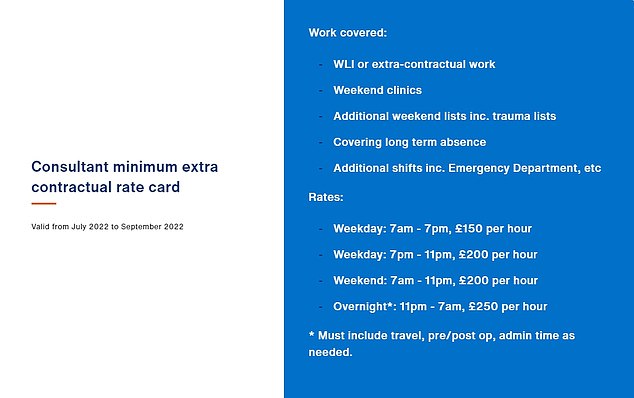
A nonprofit business plan begins with a summary section that tells the reader what change you want your organization to make. This section will discuss your mission and vision as well the goals of your organization. This summary is also a overview of what the plan consists of. It should also include your financial information and your costs.
Executive summary
A nonprofit business plan executive summary should include information about the organization's mission, goals, and strategies. It should outline the target audience as well as identify marketing strategies. It should also outline the financial situation and future plans. It should also highlight the team members. This section should include information about the board members as well as key staff.
A nonprofit business plan executive summary should include details about the daily operations, staff, and facilities. It should include information about the organization's employees, their pay structure and the types of jobs. It should also detail the hiring plans for future employees.
Section for Teams
The team section in a nonprofit business planning should detail the organization's structure. It should also include information about paid staff. In the team section, include information about training and other requirements. Include details about future hiring plans as well as temporary staffing options. Last but not least, be yourself. Be sure to include your own personal goals and qualifications.

Depending on the mission of your nonprofit, you may also include a marketing plan. Your target audience should be identified and the four Ps used to market your organization. Particularly, it is important to determine how to attract donors. Your marketing plan should also include donor and customer retention.
Costs
A section about the cost of running a nonprofit business should be included in your plan. This section should include information about the direct costs such as salaries and expenses for facilities and insurance. It should also include expenses for website maintenance, phone bills, and other costs. It is also a good idea include future cashflow statements, income, and balances.
A statement of activities is an important part of a nonprofit's business plan. It shows how much money the nonprofit makes from its activities. The statement should show a breakdown of costs and revenues for the first and second years, as well as yearly information for the third and fourth years.
Market analysis
Market analysis is one of the most important aspects in creating a nonprofit business plan. Market analysis, also called an environmental scan, involves researching the market in order to understand the needs of the target audience and how the enterprise will meet those needs. Without market knowledge, vision and mission will not be achieved. A market analysis should include an overview of the market and competitors, as well as a value proposition and product or services.
Your nonprofit's market analysis section should describe projections based market data. It should also indicate the desired outcomes for the nonprofit. A detailed operational plan is also necessary for a plan to be successful. This plan describes the organization's activities and how it will evaluate its effectiveness.

Organisational structure
A business plan for a nonprofit should outline the organizational structure and explain the goals and objectives. It should identify the industry or niche that the nonprofit will be serving. It should also outline how the nonprofit's products or services will benefit the clients and the community. The non-profit business plan must also identify its board members as well as its management team. This is why it is easiest to draw an organizational diagram.
A nonprofit organization will typically have a board of directors or a leadership team, while a business will usually have a volunteer coordinator. It does not matter what size the organization is. However, it must define its organizational structure clearly and describe its key management personnel. The goal is to describe the roles and responsibilities of each department.
FAQ
Why would a company want to hire a consultant for their business?
A consultant offers expert advice on improving your business performance. They aren't there to sell your products.
A consultant helps companies make better decisions by providing sound analysis and recommendations for improvement.
Consultants often work with senior management to help them understand how to succeed.
They offer coaching and leadership training to help employees achieve their highest potential.
They could advise businesses about reducing costs, streamlining processes and increasing efficiency.
What are the benefits of consulting?
Consultants are able to pick when and where they want to work.
This allows you to work wherever and whenever you want.
It also means you can easily change your mind without worrying about losing money.
Finally, you have the ability to control your income levels and establish your own schedule.
What can I anticipate from my consultant
You should hear back from your chosen consultant within a few days. They will request information about your company including its mission and goals, products, services, budget, and other pertinent details. Then, they'll send over a proposal outlining the scope of work, estimated time frame, fees, deliverables, milestones, etc.
If all goes according to plan, the two sides will sign a written deal. The type of relationship between the parties (e.g., employee-employer, independent contractor-employer) will affect the terms of any contract.
If everything goes as planned, the consultant may begin to work immediately. S/he will have access to your internal documents and resources, and you'll have access to his/her skills and knowledge.
Don't assume that someone who is a consultant knows everything. To become an expert in any field you consult, it takes practice and effort. Do not expect your consultant to be an expert in every aspect of your business.
Statistics
- According to statistics from the ONS, the UK has around 300,000 consultants, of which around 63,000 professionals work as management consultants. (consultancy.uk)
- On average, your program increases the sales team's performance by 33%. (consultingsuccess.com)
- My 10 years of experience and 6-step program have helped over 20 clients boost their sales by an average of 33% in 6 months. (consultingsuccess.com)
- Over 62% of consultants were dissatisfied with their former jobs before starting their consulting business. (consultingsuccess.com)
- According to IBISWorld, revenues in the consulting industry will exceed $261 billion in 2020. (nerdwallet.com)
External Links
How To
How Do I Find A Good Consultant?
Knowing what you need from your consultant is the first step to finding a qualified consultant. Do you want them to help you improve your website's performance? You want them to optimize the site for search engines to make it rank higher. Perhaps you simply need someone to tell you if your current host provider is having issues. You should know the type of services that you require before you start looking at other companies. Although there are many consultants who claim to offer these services, very few of them can actually provide the required results. So how do you go about choosing one? Here are some things to consider when picking a consultant:
-
Get recommendations. This is the best way to select a consultant. It's not a good idea to hire someone you haven't heard of, as you will likely end up paying too much. You don't want to work alongside someone whose reputation hasn't been established. If you have the good fortune to get referrals from trusted people, great! But even if you don't, you still might be able to check reviews online. Seek out testimonials from satisfied clients.
-
Ask around. Many people are unaware that hiring a consultant could make a difference. They believe that because they're doing well, they don’t need to make any changes. This is often false. Even if you are seeing great results, it is likely that you have not been keeping up to date with technology and trends. Your business could be missing out if it relies on outdated methods. It's worth asking your friends and family for recommendations to help you find the right consultant.
-
Verify their qualifications. You don't need to worry about whether they are building a website or an eCommerce store worth millions. It doesn't matter if they are qualified for the task or not; make sure they are knowledgeable in the field.
-
Find out about the types of projects they specialize. It is a common misconception that everyone can manage everything. Some areas require specialized training and education. You won't hire a Drupal developer if you need to build a WordPress template. It is the same for programming languages, graphic design, and so on. Ask the designer what kind of projects they have worked on in the past.
-
Find out what their charges are. As we mentioned, it is important to know what they charge. You don't necessarily want to pay too low, but you shouldn't either. Consultants come from all walks of life. Some consultants bill by the hour, while others charge per project. You will save money if you know exactly what you're going to pay upfront.
-
What do they offer? Are they providing free consultations? Do they offer advice on setting up your system? Is there a guarantee that your site will rank higher after working with them? You have the right to cancel at any time if you aren't satisfied with what was said during your consultation.
-
Find out if the company offers discounts for several months or years. Many consultants offer discounted pricing for extended time periods. While you don't necessarily need to commit for a whole year, you can still take advantage of any deals that they offer.